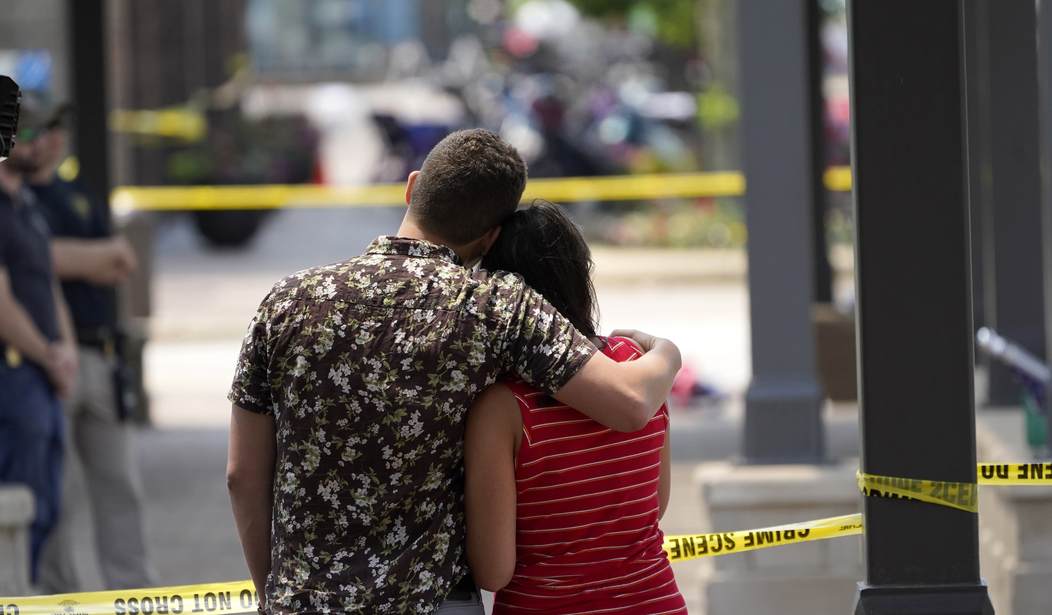There’s been a lot said about the violence problem in Chicago.
We’ve talked about it. A lot of other people talk about it. It’s not exactly some secret that few know about.
For officials there, there’s not just a need to do something about it, there’s a need to be seen to do something about it. When you’re convinced that guns, in and of themselves, are the problem, guess where you focus?
That’s right, the guns.
Yet that’s raising some questions.
In Chicago, the race to get guns off the street often begins with a police stop.
Officers just need a pretext to search someone: A man in a white Ford Sedan blocking an alleyway. A bulge in a fanny pack at the beach. A man breathing heavily in a black Chevrolet Malibu as police approached. The smell of “fresh cannabis” wafting from an open window. Tinted windows. A missing license plate. Police reports show that the list goes on.
Authorities tout these arrests as an effective crime-fighting strategy. “Each gun recovered, regardless of how, is a potential life saved,” said former Chicago Police Superintendent David Brown in a press conference last year. It’s a common refrain repeated by officials from San Jose, California, to the small city of Utica, New York, as gun deaths rose across the country.
But in Chicago, a town labeled as “ChiRaq,” a “war zone,” and a “murder capital,” gun enforcement overwhelmingly focuses on possession crimes — not use.
A Marshall Project analysis found that from 2010 to 2022, the police made more than 38,000 arrests for illegal gun possession. These arrests — almost always a felony — doubled during this timeframe. While illegal possession is the most serious offense in most of the cases we analyzed, the charges often bear misleading names that imply violence, like “aggravated unlawful use of a weapon.”
Recent research shows that most people convicted in Illinois for felony gun possession don’t go on to commit a violent crime, and the majority of those sentenced to prison for gun possession don’t have past convictions for violence. Instead, people who already committed violent crimes are more likely to do so again.
Now, these people are, indeed, carrying a firearm illegally. That’s a bit of an issue, sure, but it’s one we need to explore deeper in and of itself.
The fact that these aren’t violent offenders, though, tells us a lot about how effective Chicago’s efforts actually have been.
Yet there are arguably bigger questions, as The Marshall Project notes.
The racial disparities in this enforcement are glaring. Although Black people comprise less than a third of the city’s population, they were more than 8 in 10 of those arrested for unlawful possession in the timeframe we reviewed. The number of Black people arrested could fill every seat at a Chicago Bulls game and then some; the majority are men in their 20s and 30s.
The consequences of these arrests are long-lasting. If convicted, people face a year or more in prison, depending on the charges. Even without time behind bars, those we interviewed faced damning criminal records, time on probation, job loss, legal fees and car impoundments.
Officials justify the focus on confiscating guns — even if they are not being fired at anybody — as a way of curtailing violence. But these tactics have not substantially reduced shootings in Chicago. In fact, as possession arrests skyrocketed, shootings increased, but the percentage of shooting victims where someone was arrested in their case declined.
That is a massive problem at just about every level.
Now, I’m not someone who believes that disparities in who gets punished are necessarily indicative of racism in the laws themselves–things are more complicated than that, after all–but a lot of people who support gun control do. By this metric, weapon possession laws like we see in Chicago qualify as being racist, even if not intentionally so.
Yet we also see that this enforcement hasn’t actually worked.
While cracking down on people carrying guns, ostensibly to reduce violent crime, shootings actually increased. If the laws in question, as well as the increases in the enforcement of those laws, didn’t reduce shootings, then it seems like the laws have failed spectacularly.
“But they were still carrying illegally,” someone will chime in, and yes, that’s true. What no one seems to be asking is why?
The lazy answer is that they’re carrying illegally because they’re criminals. It’s lazy because while that’s technically true, it doesn’t actually answer the question. It just looks sort of like it does.
The answer is really self-defense. We know because some of those carrying guns illegally told us. They’re no different than the rest of us. They want to protect themselves from a violent attack.
Some of them, though, aren’t convicted felons. At least, not to start with.
Illinois requires a 16-hour training class costing around $225 and a $150 application fee in order to get a concealed carry permit. That’s $375 on top of the cost of a FOID and the gun itself to own and possess a gun lawfully. That’s more than some (admittedly cheap) firearms cost.
In other words, the rules that are supposed to stop criminals are just creating more of them.
Chicago has problems, and their gun control laws are likely part of the issue. Since those laws, and the enforcement of those possession laws, aren’t doing the trick, it’s time to step back and reevaluate things.








Join the conversation as a VIP Member